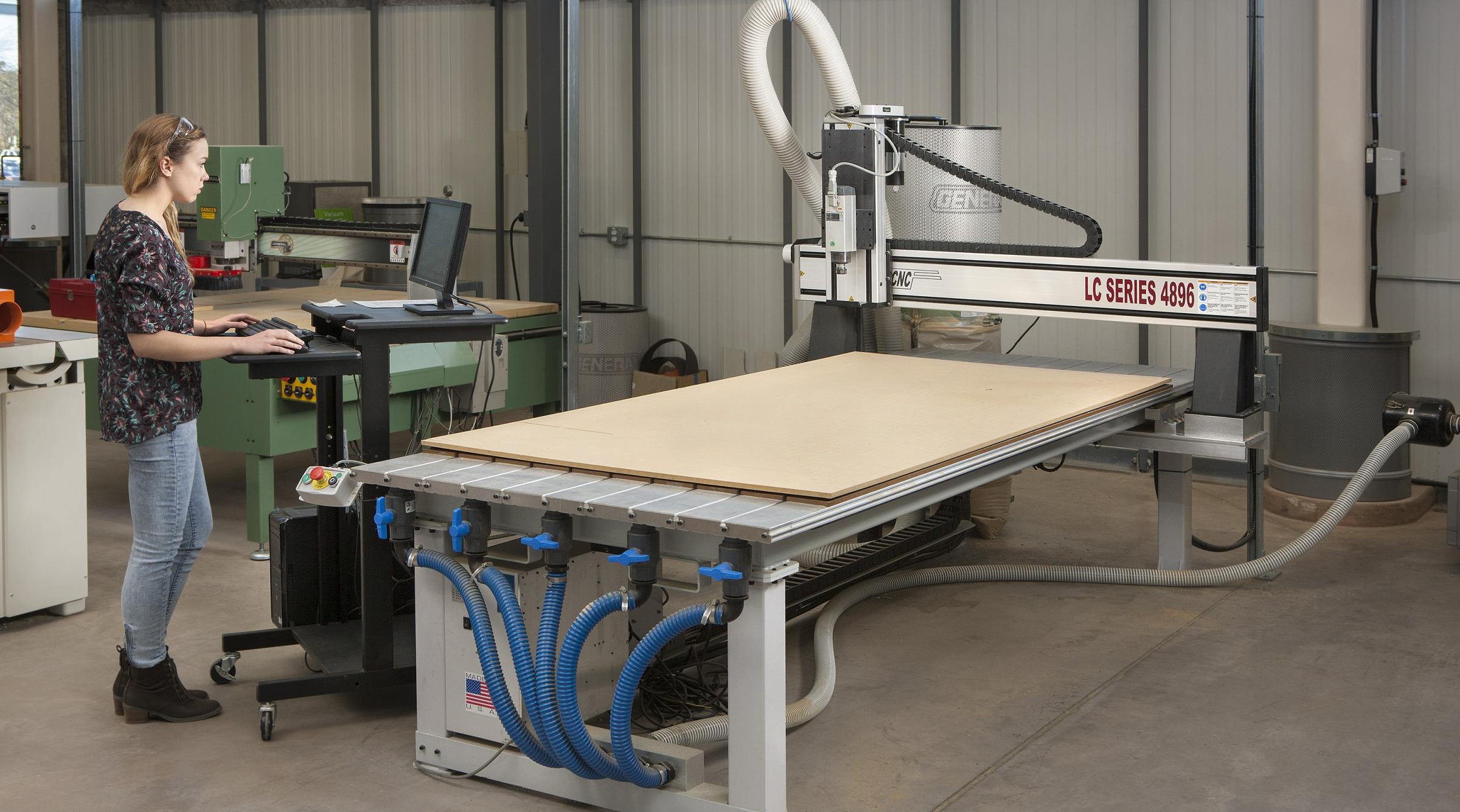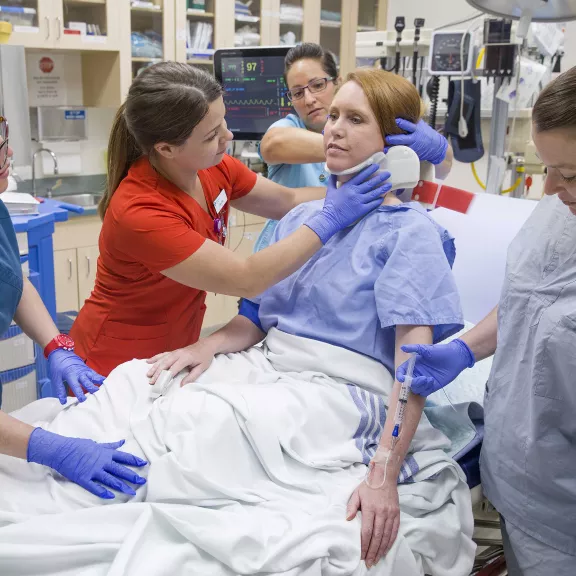Work-integrated Learning

Creating Impactful Connections
Work-integrated learning (WIL) connects students with employers through experiential education. This page provides information for RDP students, faculty, staff, and employers as coordinated through the Career Education and Experience Development (CEED) Centre.
Through Work-Integrated Learning, students don't just learn—they thrive in real-world environments where theory meets practice.
Through Work-Integrated Learning, students don't just learn—they thrive in real-world environments where theory meets practice. The powerful partnerships between RDP, employers, and students create a win-win scenario: students develop career-ready skills and employers shape their future talent pipeline.
Together, we're building not just résumés but the adaptable, innovative workforce that today's economy demands.
WIL can be traditional or non-traditional, and it is an evolving ecosystem, much like workplaces and post-secondary institutions.
WIL is classified into four groups:
- Mandatory Professional Practice (MPP),
- Community Learning,
- Innovative WIL, and
- Internships and Co-operative Education.
Categories of Work-integrated Learning (WIL)
Mandatory Professional Practice (MPP)
Mandatory Professional Practice involves work experience under the supervision of a registered or licensed professional that requires practice-based work experience for certification.
Community Learning
- Community Service Learning combines purposeful community service, classroom teachings and critical reflection in partnership with community-based organizations.
- Field Placements are part-time and short-term intensive, practical experiences in a setting related to a student's program of study.
- Work Experience is typically full-time, providing students with experience in a workplace related to their program of study.
Innovative Work-integrated Learning
- Applied Research provides students the opportunity to assist with design, research or consulting projects.
- Entrepreneurial WIL students use resources to engage in the early development of start-ups or to move their business ideas forward.
- Emerging WIL expands WIL opportunities through variations on traditional WIL, for example, micro-placements or online projects or placements.
Internships & Co-operative Education (Co-ops)
Internships & Co-operative Education (Co-ops) provide students with a structured, supervised work placement that is part of their program and counts toward academic credit.

Clinical & Practicum Placement Requirements
To help prepare our students for success in their chosen career, part of the education and training we provide at RDP may involve work experiences that help give learners a head start in their profession.
Before students begin clinical or practicum placements, they must complete certain health and safety requirements and other requirements.

I had the opportunity to experience the entire recruitment cycle within the town's HR Department. Recruitment is a key entry-level skill in the HR industry, and I gained valuable experience in tasks such as scheduling, screening resumes, and conducting interviews. Additionally, I developed strong skills in creating and updating job descriptions, which is also an essential entry-level skill in HR.
More Information For:
Students
Work-integrated learning (WIL) includes experiential education opportunities that may be curricular or extracurricular, paid or unpaid. Through partnerships between an academic institution and a host organization, students engage in WIL to develop practical workplace skills, turn theory into action, explore future career pathways and make a positive impact.
At RDP, students may be assigned specific types of WIL through courses within their programs.
Mandatory Professional Placements (MPP)
Several regulated professions engage with students through mandatory professional placements as an opportunity for students to gain real-world skills that will benefit them in the workforce. MPPs are generally unpaid and are required by the regulatory bodies in a given program in order for graduates to practice in their profession.
Community Learning
Students may partner with businesses and community organizations, facilitated through RDP, to undertake WIL projects. These partnerships can be paid or unpaid and they may include community service learning, work experience and field placements.
Innovative WIL
Students can participate in Innovative WIL, which may be paid or unpaid and is typically more flexible in time commitment and duration. Innovative WIL can include applied research such as consulting projects, design and community-based research projects. Innovative WIL may also include entrepreneurship, which could include the early-stage development of a new business start up.
Internships and Co-ops
RDP is looking forward to developing quality internship and co-op opportunities for students in the future.
Learn more about the different types of WIL, as described on the Business + Higher Education Roundtable (BHER) webpage.
Resources for Students
WIL FAQ's for Students
BHER shares a variety of Frequently Asked Questions (FAQs) for students surrounding topics such as applying, networking, interviewing, onboarding and reflecting to succeed in any Work-Integrated Learning (WIL) experience
Information and Communications Technology Council (ICTC) E-Learning Courses
ICTC offers a unique and highly engaging way to learn about the impact of technology on emerging industries in the digital economy. The self-directed courses offer a practical and strategic learning journey to help students achieve their personal and professional goals within the information and technology spheres.
Student Perspectives on WIL and BHER
BHER's new Q&A article series, In Conversation on WIL, can be found below. This series offers some personal advice from BHER's Student Advisory Board (SAB) on key milestones of a WIL placement - including finding a job, interviewing, the first week on the job, working from home, networking and wrapping up a placement.
Faculty
The CEED Centre provides a resource for RDP faculty who have WIL in their course and program delivery.
Whether you already have well-established WIL components in your curriculum or you are looking to enhance opportunities for students, we are here to support you.
For additional information, faculty can learn more about WIL by visiting Co-operative Education and Work-Integrated Learning Canada (CEWIL).
WIL Resources for Faculty
A Practical Guide for Work-integrated Learning
A resource to enhance student learning and development in higher education through the structured work experience.
Emotional Intelligence and Work-integrated Learning: A Resource for Educators
For post-secondary educators who are interested in exploring the relationship between emotional intelligence and work-integrated learning.
The Practice of Co-op and Work-integrated Learning in the Canadian Context (eBook)
Co-operative Education and Work-integrated Learning Canada
CEWIL Canada supports WIL in numerous ways from best practices and toolkits to funding opportunities. The CEWIL iHub provides grant based funding to enable and promote curricular WIL. iHub supports the advancement of, and innovation in multiple forms of WIL. Please reach out to see Career Education and Experience Development (CEED) for support in applying for CEWIL iHub funds.
Employers
The CEED Centre works with employers and community partners to connect them with students for WIL opportunities. The CEED Centre can offer employer and partner support through the whole process, including developing a WIL experience or position, locating funding, onboarding of students and completing evaluations.
Hosting WIL benefits employers by adding workload capacity, new perspectives and skill sets, and bringing projects or initiatives that have been on the back burner to the forefront. Through WIL, post-secondary institutions, employers and students all contribute to an adaptable and resilient workforce that is aligned with the labour market needs of Alberta.